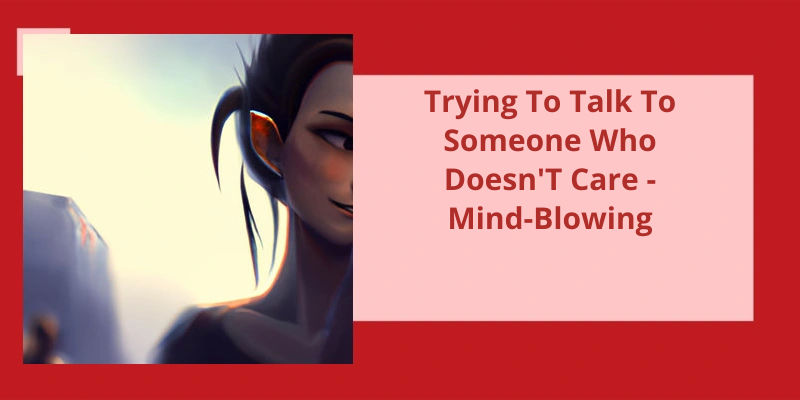When it comes to written communication, time is of the essence. We live in a fast-paced world where everyone is constantly on the move, and we’ve limited patience for anything that takes up too much of our time. That's why it's important to consider the length of our texts, emails, and other written messages. While it's tempting to write out every detail of an idea or story, doing so can cause boredom, frustration, and even resentment in your intended audience. So, are long texts annoying? In short, yes. Keeping your written communication concise and to the point can make all the difference in maintaining positive relationships and productive conversations.
Is It OK to Send a Long Text?
One of the most common communication methods today is texting. Texting has made communication faster and more convenient than ever before. It’s easy to send a quick message to someone regardless of their location or time zone. However, over the years, the way people communicate through text has changed, and it’s not always clear what’s acceptable and what isnt.
Though it’s always important to be clear and concise in communication, the truth is texts shouldnt be too long. Limiting the length of your texts can ensure that you get your message across while also respecting the other persons time. It’s important to consider the recipients schedule and routine because they may be working, in a meeting, or busy with other tasks. A long text message can be overwhelming and easily ignored, especially in an instance where a response is expected quickly.
A good rule of thumb to follow is to keep your texts short and sweet. It would be best to limit your text messages to a few sentences or a paragraph that covers the essentials of what you wish to convey. Be mindful of your words and avoid using unnecessary phrases or slang. If it’s necessary, use bullet points or emojis to make your message more accessible to the recipient.
The Impact of Language and Tone on Text Messages
In this topic, we examine how the way we write messages can influence their reception. The language we choose and the tone we convey can contribute significantly to how our messages are understood and received by the recipient. This impacts the relationship with the recipient and can lead to misunderstandings if not used effectively.
When it comes to texting, there’s always the age-old question of how long is too long for a text message. While most phones have a character counter that helps keep messages within a certain limit, some people still wonder if their messages are too lengthy. But is there a definitive answer to this question, or is it subjective? Let’s explore this topic further.
How Long Is Too Long of a Text Message?
However, while 160 characters may be the standard for a single text message, there’s no hard and fast rule for how long is too long. It really depends on the recipient and the purpose of the message. If youre sending a simple message to a friend or family member, a longer text message may not be a problem. But if youre sending a message to a colleague or business associate, it’s best to keep it short and to the point.
Some people prefer shorter messages because they don’t want to spend too much time reading a long text. Others find longer messages more engaging and informative. It’s important to consider your audience when crafting a message and to be mindful of their preferences.
When it comes to professional settings, it’s generally best to err on the side of brevity. Long messages in a business context can come across as unprofessional and may be perceived as a waste of time. It’s better to keep your messages concise and to the point so that your recipients can quickly and easily understand what youre trying to communicate.
Another factor to consider is the medium through which youre communicating. Text messages are usually better suited for short and quick exchanges, whereas email or other messaging platforms may be better for longer messages that require more explanation.
It’s up to you to gauge the situation and the audience, and to craft your message accordingly. Just remember to be respectful of your recipients time and attention, and to avoid wasting their time with overly long messages.
The Impact of Text Message Length on Communication Effectiveness and Perceived Professionalism
This article discusses how the length of text messages can affect how effectively individuals communicate and how they’re perceived as professionals.
Source: Texting Etiquette – How to Send a Text Message – Woman’s Day
Texting has become an essential part of our daily communication, especially when it comes to expressing our hearts out to someone. One common question that lingers in the back of our minds while chatting with someone is whether the other person likes us or not. Among the many signs that we may look for, long text messages are often considered one of the most significant signals.
Does He Like Me if He Sends Long Texts?
When a guy is interested in someone, he naturally wants to initiate conversation and maintain a connection. Texting is a popular method of communication and if he’s sending you long texts, it could be a sign that he’s a strong desire to connect with you on a deeper level. Perhaps he’s trying to impress you with his witty banter or insightful responses.
In this case, it may not necessarily mean that he’s romantic feelings towards you, but rather that he values your friendship and enjoys talking to you.
It’s important to pay attention to the content of the texts as well. If he’s consistently sending thoughtful and engaging texts, it could indicate that he’s interested in getting to know you more intimately. On the other hand, if his texts are short and to the point, he may not be as invested in the conversation.
One thing to keep in mind is that everyone has their own communication style. While some people may prefer to send long texts, others may find it exhausting. It’s important to communicate openly with the person and ask them what their texting style is like.
However, it’s a positive sign that he values your communication and wants to develop a deeper connection. If youre interested in him, don’t be afraid to reciprocate with thoughtful and engaging responses.
The Importance of Considering Non-Verbal Communication Cues (Such as Emojis or Tone) in Text Messaging
- Non-verbal communication cues carry crucial information in text messaging.
- Emojis can help convey tone and emotion.
- Tone can greatly influence the message received.
- Ignoring non-verbal cues can lead to misunderstandings and miscommunication.
- It’s important to be mindful of non-verbal cues when texting in both personal and professional settings.
It’s not unusual for people to send longer text messages when they’re interested in someone. However, when it comes to girls, there may be a particular reason why they tend to send lengthier messages. But before we dive into that, it’s essential to understand that when a girl sends you lengthy texts, it’s a clear indication that she’s thinking about you.
Why Do Girls Send Long Texts?
Girls often send lengthier text messages because theyre more expressive in their communication. They like to explain things in greater detail and provide context to their discussions. They also tend to be more emotional, and they want to convey their feelings to the other person. When a girl likes someone, she may feel more comfortable expressing her emotions in long, drawn-out messages.
Another reason why girls send long texts is because they want to connect with the other person. When they feel a strong emotional or intellectual connection with someone, they may feel the need to share more information about themselves. They may also want to learn more about the other person, so they ask more questions and delve deeper into the conversation. Long text messages are a way for them to connect and build meaningful relationships.
When they feel comfortable with someone, they’re more likely to share their thoughts, feelings, and experiences. Girls may also use long texts to share personal stories or experiences, which can create a deeper understanding and connection with the other person.
They may use teasing, compliments, or witty banter to keep the conversation going and show their interest in the other person. Long texts can also be a way of expressing their attraction and desire for the other person. They may use more romantic language or emojis to hint at their feelings and intentions.
Shes thinking about you and wants to connect with you on a deeper level. Whether shes sharing personal stories, flirting, or just chatting, her lengthy messages are a way of showing that she values your time and attention. So, pay attention to those long texts and cherish them as a sign of her interest and affection.
How to Effectively Respond to Long Texts From Girls and Show Interest in Their Messages
To effectively respond to long texts from girls and show interest in their messages, take the time to read the message thoroughly and respond with thoughtful, engaged replies. Show that you’re listening and understanding what they’re saying by asking follow-up questions and sharing your own thoughts and experiences. Additionally, don’t be afraid to use emojis or GIFs to add some personality and humor to your responses. Overall, the key is to demonstrate that you value their messages and are invested in the conversation.
When it comes to texting a girl, there are some things you should never do. Sending texts that are too sexual too soon, just saying “Hi” or “Hey,” asking for a first date over text, and sending texts that require a long response are all big no-nos. Vague or confusing texts and just sending your phone number are also not ideal. And of course, not texting at all is never a good strategy. Keep reading to find out more about what not to text a girl.
What Not to Text a Girl?
Dating has become more challenging with the advent of technology, especially with the prevalence of text messaging. While texting can be a convenient way to communicate, it can also be a minefield for those new to dating or trying to get to know someone better. Women, in particular, can be wary of men who don’t know how to communicate tactfully or respectfully through text messages.
One of the most common mistakes men make is sending texts that oversexualize things, especially early on in the relationship. This can be a major turn off for women, especially if they arent ready for that kind of conversation. It’s important to be respectful and mindful of the other persons boundaries and comfort level before sending any messages that could be interpreted as crude or inappropriate.
Another mistake to avoid is sending texts that simply say “Hi” or “Hey.”. These types of messages can come across as lazy or uninterested. It’s important to put some thought and effort into your messages to show that youre genuinely interested in getting to know the person youre texting. This doesn’t mean that you’ve to write a novel each time you send a message, but taking the time to be thoughtful and engaging can make a big difference.
A text asking for a first date can also be risky, especially if you havent had much interaction with the person yet. It’s important to build a rapport and establish some trust and familiarity before suggesting a date. A better approach might be to invite the person to a group event or activity first, rather than jumping straight into a one-on-one date.
Texts that require a long response can also be a mistake, especially if youre texting early in the morning or late at night. It’s important to be mindful of the other persons schedule and not to send messages that demand a lot of time or attention when they might be busy or unavailable. Instead, keep your messages concise and to the point, and be respectful of the other persons time.
Texts that are vague or confusing can also be frustrating for women. It’s important to be clear and direct in your messages so that there’s no confusion about what youre trying to say. This means avoiding overly complicated or ambiguous language, and not leaving things open to interpretation.
Finally, it’s important not to send a text with just your phone number. This can come across as impersonal or even creepy, and it’s unlikely to yield the results youre looking for. Instead, take the time to craft a thoughtful message that shows youre genuinely interested in getting to know the woman youre texting.
There are certain texts that men should avoid sending to women, especially in the early stages of a relationship. By being respectful, thoughtful, and direct in your messages, you can establish a rapport and build trust with the person youre texting, which will go a long way in building a successful relationship.
When it comes to texting, there are various types of messages that can cause annoyance, with the novel-long texts being only one of them. According to experts, messages written in all caps, one word responses, contextless links, and emoji-only replies are among the most common examples of annoying texts. In this article, we’ll examine these and other types of messages that can elicit irritation from the recipients.
What Are Some Annoying Texts?
Texting has become one of the most common forms of communication in todays world, but there are certain types of texts that can be annoying. One of the most frustrating types of texts is anything written in all caps. This can come across as shouting and can be difficult to read. It’s important to remember that using all caps should be reserved for emphasis only, not as a way to convey anger or frustration.
Another type of text that can be annoying is the “Why did you call me?” message. This is especially frustrating if the person could have easily answered the phone call. It’s important to remember that not everyone has time to text back and forth, and sometimes a phone call is the best way to communicate.
The infamous single-letter response of “K” is another text that can be annoying. This response often comes across as cold and dismissive, especially if it’s in response to a longer message. If the person doesn’t have time to write a longer response, it’s better to wait until they do than to send a one-word response.
Sending a link without any sort of context can also be frustrating. The person receiving the text may not know why the link was sent or what type of content it includes. Before sending a link, it’s important to provide some context so the recipient knows what theyre clicking on.
One of the most common annoying texts is the simple “Hey.”. This text can often come across as lazy or uninterested in the conversation. If you want to start a conversation, it’s important to put some effort into it and provide some context or a specific question.
Finally, responding with just emojis all the time can be frustrating. While emojis are a fun way to add some personality to a message, it’s important to also include written responses. This will help ensure that the communication is clear and easy to understand.
From all caps messages to single-letter responses, it’s important to keep in mind how our messages come across to others. By putting a little effort into our texts and providing context when needed, we can ensure that our communication is smooth and effective.
Texting Etiquette: What to Do and What Not to Do
- Do respond promptly to messages
- Do proofread before hitting send
- Do use emojis and punctuation appropriately
- Do respect people’s time and avoid excessive texting
- Don’t use all caps—it’s considered shouting
- Don’t send messages too early or late in the day
- Don’t send lengthy messages that should be a phone call or in-person conversation
- Don’t use texting as a substitute for face-to-face communication
Conclusion
In conclusion, it’s vital to remember that brevity is the soul of wit, and this applies to text messages as well. While it’s essential to convey your thoughts effectively, excessively long texts can be inconvenient and overwhelming for the recipient. It’s crucial to be mindful of their time and ensure that your messages concisely deliver the intended message. Therefore, by keeping your texts short and to the point, you can ensure that your messages are received with gratitude and not irritation.






